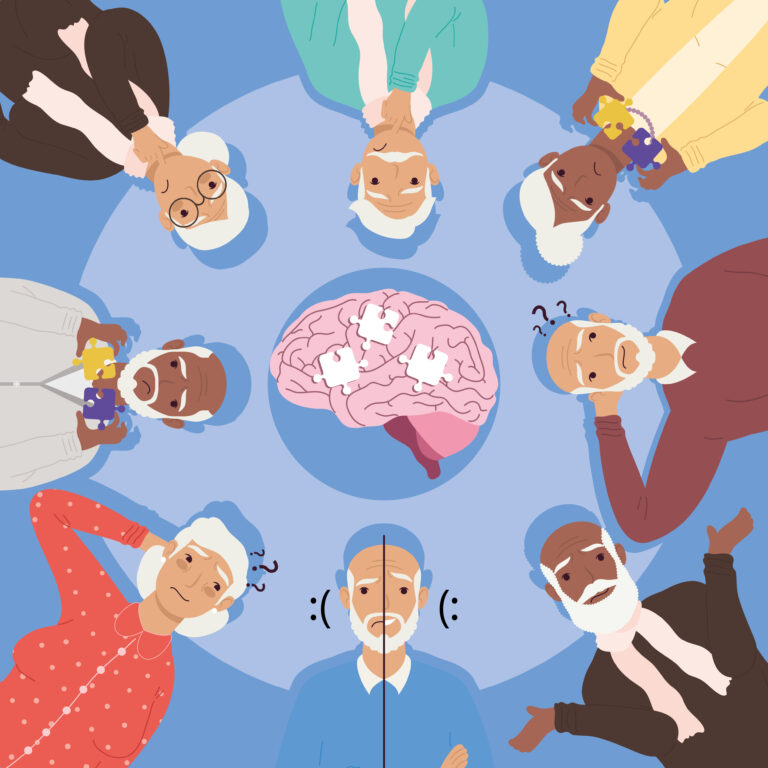As we age, it is natural for our bodies and minds to undergo changes. One of the most devastating changes that can occur is the development of Alzheimer’s disease. This progressive brain disorder affects millions of people worldwide and can have a significant impact on both the individual and their loved ones. As the disease progresses, it can become increasingly challenging for family members and caregivers to provide constant care and support. This is where Alzheimer’s respite care comes in.
What is Alzheimer’s Respite Care?
Alzheimer’s respite care is a form of specialized care designed to support individuals with Alzheimer’s disease and their families. It provides temporary relief for family caregivers, allowing them to take a break from their caregiving duties while ensuring the individual with Alzheimer’s receives the care and attention they need. This type of care can be provided in different settings, including nursing homes, assisted living facilities, adult day care centers, or even in the individual’s own home.
Why is Respite Care Important for Alzheimer’s Patients?
Caring for a loved one with Alzheimer’s can be physically, emotionally, and mentally exhausting. The demands of caregiving can take a toll on family members, leading to burnout, stress, and other health issues. Respite care provides a much-needed break for caregivers, allowing them to rest and recharge so they can continue to provide quality care for their loved one.
Additionally, Alzheimer’s patients often require round-the-clock care and supervision. This can be challenging for family members who may have other responsibilities such as work or caring for their own children. Respite care allows caregivers to take care of these responsibilities without worrying about leaving their loved one alone. It also gives them the opportunity to attend to their own needs, whether it be running errands, exercising, or spending time with friends and family.
Types of Respite Care for Alzheimer’s Patients
1. In-Home Respite Care: This type of respite care involves a trained caregiver coming to the individual’s home to provide care. This allows the person with Alzheimer’s to remain in a familiar and comfortable environment while giving their family members a break.
2. Adult Day Care: Adult day care centers provide socialization, activities, and supervision for individuals with Alzheimer’s during the day. This can be a great option for caregivers who work during the day or need a few hours of respite care.
3. Overnight Respite Care: This type of care is especially helpful for caregivers who need a break from providing care during the night. A trained caregiver will stay with the individual overnight, ensuring they are safe and well-cared for.
4. Residential Respite Care: This type of care involves temporarily placing the individual with Alzheimer’s in a nursing home or assisted living facility for a short period. This can be helpful when the caregiver needs an extended break or is unable to provide care due to their own health issues.
The Benefits of Alzheimer’s Respite Care
1. Reduced Stress and Burnout: Caring for someone with Alzheimer’s can be physically and emotionally taxing. Respite care allows caregivers to take a break and recharge, reducing the risk of burnout and stress.
2. Improved Quality of Life for Patients: Respite care provides patients with socialization, activities, and professional care, which can improve their overall quality of life.
3. Peace of Mind for Caregivers: Knowing that their loved one is receiving professional care and attention can give caregivers peace of mind and alleviate worries or guilt about taking a break.
4. Prevents Caregiver Strain: Respite care can prevent strain on the caregiver’s relationship with their loved one. It allows them to maintain a healthy balance between being a caregiver and a family member.
5. Expert Care and Support: Trained caregivers in respite care facilities have the knowledge and experience to provide specialized care for individuals with Alzheimer’s. This can be especially helpful for caregivers who may not have experience in caring for someone with this disease.
In conclusion, Alzheimer’s respite care is a valuable resource for both individuals with Alzheimer’s and their families. It allows caregivers to take a break and recharge while ensuring their loved one receives the care and attention they need. If you are a caregiver for someone with Alzheimer’s, it is important to prioritize your own well-being and consider utilizing respite care services. Taking care of yourself is crucial in providing the best care for your loved one.




